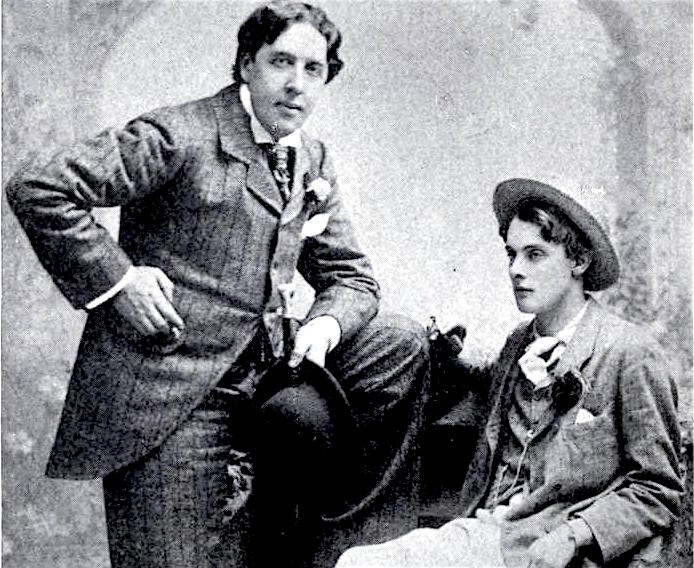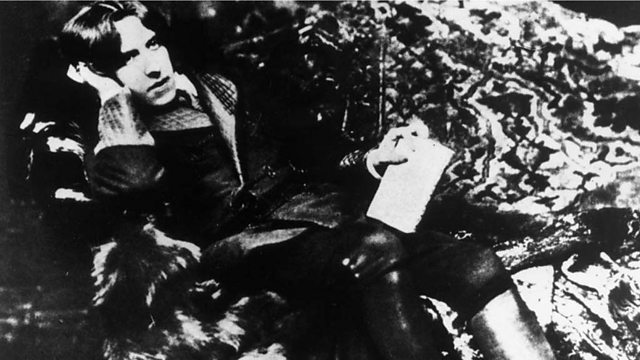A Journey into the Literary Brilliance of Oscar Wilde
Oscar Wilde, the iconic Irish playwright, poet, and author, continues to captivate audiences with his wit, charm, and literary brilliance. Born on October 16, 1854, in Dublin, Ireland, Wilde emerged as one of the most celebrated literary figures of the late Victorian era, known for his sharp wit, flamboyant style, and keen observations of society. Wilde's early life was marked by privilege and creativity. The son of a prominent doctor and a literary mother, Wilde grew up surrounded by books and intellectual stimulation. He excelled academically, earning scholarships to prestigious schools such as Trinity College, Dublin, and Magdalen College, Oxford, where he distinguished himself as a scholar and wit among his peers.
Wilde's early life was marked by privilege and creativity. The son of a prominent doctor and a literary mother, Wilde grew up surrounded by books and intellectual stimulation. He excelled academically, earning scholarships to prestigious schools such as Trinity College, Dublin, and Magdalen College, Oxford, where he distinguished himself as a scholar and wit among his peers.
After graduating from Oxford, Wilde embarked on a successful career as a writer, poet, and lecturer. His early literary efforts garnered attention for their wit, humor, and keen insight into human nature. Wilde's plays, essays, and poems were characterized by their sharp social commentary and playful irreverence, earning him a reputation as one of the leading voices of the Aesthetic movement. Wilde's breakthrough came with the production of his comedic play "Lady Windermere's Fan" in 1892. This sparkling satire of Victorian society, with its witty dialogue, memorable characters, and sharp social commentary, established Wilde as a master of the comedic genre and solidified his reputation as a playwright of note.
Wilde's breakthrough came with the production of his comedic play "Lady Windermere's Fan" in 1892. This sparkling satire of Victorian society, with its witty dialogue, memorable characters, and sharp social commentary, established Wilde as a master of the comedic genre and solidified his reputation as a playwright of note.
However, it was Wilde's next play, "The Importance of Being Earnest" (1895), that cemented his status as one of the greatest playwrights of his time. A masterpiece of wit and farce, "The Importance of Being Earnest" remains one of Wilde's most enduring works, celebrated for its razor-sharp wit, clever wordplay, and hilarious satire of Victorian manners and morals.
Wilde's literary achievements extended beyond the stage to include his essays, short stories, and poetry. His collection of fairy tales, "The Happy Prince and Other Tales" (1888), showcased Wilde's gift for storytelling and his ability to imbue fantastical tales with profound moral lessons and timeless truths. Similarly, his only novel, "The Picture of Dorian Gray" (1890), explored themes of vanity, morality, and the pursuit of beauty, cementing Wilde's reputation as a master of the decadent aesthetic..jpg) In addition to his literary pursuits, Wilde was also known for his larger-than-life persona and flamboyant lifestyle. With his trademark wit, flamboyant dress, and charming demeanor, Wilde became a celebrated figure in London society, known for his sparkling wit and dazzling conversational skills. His infamous wit and penchant for the unconventional made him a magnet for attention and controversy, further fueling his reputation as a cultural icon.
In addition to his literary pursuits, Wilde was also known for his larger-than-life persona and flamboyant lifestyle. With his trademark wit, flamboyant dress, and charming demeanor, Wilde became a celebrated figure in London society, known for his sparkling wit and dazzling conversational skills. His infamous wit and penchant for the unconventional made him a magnet for attention and controversy, further fueling his reputation as a cultural icon.
However, Wilde's glittering career was overshadowed by scandal and tragedy in his later years. In 1895, Wilde was convicted of "gross indecency" for his homosexual relationships, a crime under British law at the time. He was sentenced to two years of hard labor and endured public humiliation and ostracism as a result of his trial.
Despite the personal and professional setbacks he faced, Wilde remained defiant and resilient in the face of adversity. Even during his time in prison, he continued to write, producing some of his most poignant and introspective works, including the powerful poem "The Ballad of Reading Gaol," which reflected on his experiences and the injustices of the penal system.
After his release from prison, Wilde lived out the remainder of his life in exile, moving to France under the pseudonym "Sebastian Melmoth." Though he continued to write and publish works during this time, including the satirical play "The Importance of Being Earnest," Wilde's health and spirit were irreparably damaged by his experiences, and he died in relative obscurity in 1900 at the age of 46. In the years since his death, Wilde's legacy has only grown stronger, with his works continuing to be celebrated and studied by audiences around the world. His plays remain staples of the theatrical repertoire, his essays and stories are still read and admired for their wit and insight, and his life and legacy continue to fascinate and inspire generations of readers, writers, and artists.
In the years since his death, Wilde's legacy has only grown stronger, with his works continuing to be celebrated and studied by audiences around the world. His plays remain staples of the theatrical repertoire, his essays and stories are still read and admired for their wit and insight, and his life and legacy continue to fascinate and inspire generations of readers, writers, and artists.
One of the key aspects of Wilde's enduring appeal lies in his mastery of language and wit. His works are filled with memorable aphorisms, epigrams, and bons mots that continue to delight readers with their cleverness and insight. Whether he was skewering societal conventions, poking fun at the absurdities of human behavior, or offering profound reflections on life and love, Wilde had an unparalleled gift for turning a phrase and capturing the essence of the human experience in a few succinct words.
For example, Wilde's famous line "I can resist everything except temptation" from his play "Lady Windermere's Fan" encapsulates the paradoxical nature of human desire and the struggle to reconcile our impulses with our ideals. Similarly, his assertion that "We are all in the gutter, but some of us are looking at the stars" from "Lady Windermere's Fan" speaks to the capacity for beauty and transcendence even in the midst of adversity. Wilde's influence extends beyond the realm of literature to encompass art, fashion, and popular culture. His flamboyant personality, distinctive style, and unapologetic embrace of aestheticism made him a symbol of rebellion and individualism in an era characterized by rigid social norms and conventions. From his distinctive velvet jackets and flowing cravats to his penchant for decadence and excess, Wilde embodied the spirit of the fin de siècle and became an icon of the aesthetic movement.
Wilde's influence extends beyond the realm of literature to encompass art, fashion, and popular culture. His flamboyant personality, distinctive style, and unapologetic embrace of aestheticism made him a symbol of rebellion and individualism in an era characterized by rigid social norms and conventions. From his distinctive velvet jackets and flowing cravats to his penchant for decadence and excess, Wilde embodied the spirit of the fin de siècle and became an icon of the aesthetic movement.
Moreover, Wilde's exploration of themes such as artifice, identity, and the nature of beauty continues to resonate with contemporary audiences. In an age defined by the proliferation of social media and the cult of celebrity, Wilde's critiques of superficiality, shallowness, and the commodification of beauty feel as relevant as ever. His insistence on the importance of authenticity, self-expression, and the pursuit of one's own artistic vision serves as a powerful reminder of the enduring value of art in an increasingly commercialized world.
In recent years, there has been a renewed interest in Wilde's life and work, with numerous biographies, adaptations, and reinterpretations exploring his legacy from new perspectives. Films such as "Wilde" (1997), starring Stephen Fry as the titular playwright, and "The Happy Prince" (2018), directed by and starring Rupert Everett as Wilde, have brought his story to new audiences and shed light on the complexities of his life and legacy.
Additionally, Wilde's works continue to be adapted for the stage and screen, with productions of his plays drawing crowds of theatergoers eager to experience his wit and wisdom firsthand. From traditional interpretations to modern reimaginings, Wilde's plays offer directors and actors endless opportunities for creative expression and exploration, ensuring that his legacy will endure for generations to come. In conclusion, Oscar Wilde's enduring legacy as a writer, wit, and cultural icon is a testament to the timeless power of his words and ideas. From his sparkling comedies to his haunting poetry, Wilde's works continue to captivate and inspire audiences around the world, inviting us to embrace life with wit, style, and an unapologetic embrace of beauty and individualism. As we continue to explore his life and work, we are reminded of the enduring relevance of his insights into human nature and the enduring power of art to illuminate, provoke, and inspire.
In conclusion, Oscar Wilde's enduring legacy as a writer, wit, and cultural icon is a testament to the timeless power of his words and ideas. From his sparkling comedies to his haunting poetry, Wilde's works continue to captivate and inspire audiences around the world, inviting us to embrace life with wit, style, and an unapologetic embrace of beauty and individualism. As we continue to explore his life and work, we are reminded of the enduring relevance of his insights into human nature and the enduring power of art to illuminate, provoke, and inspire.













![[ℕ𝕖𝕧𝕖𝕣] 𝕊𝕖𝕝𝕝 𝕐𝕠𝕦𝕣 𝔹𝕚𝕥𝕔𝕠𝕚𝕟 - And Now What.... Pray To The God Of Hopium?](https://cdn.bulbapp.io/frontend/images/79e7827b-c644-4853-b048-a9601a8a8da7/1)




































